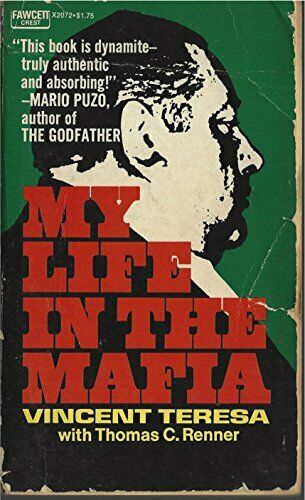Especially when numerous supporters stated that they interpreted “fight like hell” as license to go down and commit violent acts at the Capitol.
Seems to me that the BBC-Trump affair is much cackling in the henhouse over not much.
Especially when numerous supporters stated that they interpreted “fight like hell” as license to go down and commit violent acts at the Capitol.
Seems to me that the BBC-Trump affair is much cackling in the henhouse over not much.
No doubt there will be a tariff threatened, if nothing else.
(Will they argue that if it’s on the internet it has been broadcast in the US? Not sure if or where it appeared, though)
Sure you can. “Sod off”.
What I would like to see is the BBC sue Trump for $1bn (or more) for claiming the BBC is “100% fake news”. If successful we should see a fairly significant reduction in the licence fee.
If trump isn’t careful, he’s going to get a reputation for being litigious.
(Will they argue that if it’s on the internet it has been broadcast in the US? Not sure if or where it appeared, though)
“Broadcast” is a transmitter sending an RF signal through the ether, but I doubt lawyers know that.
“Broadcast” is a transmitter sending an RF signal through the ether, but I doubt lawyers know that.
No, but they doubtless have folks who do know it. And if the Average MAGA doesn’t know, all the better.
“Broadcast” is a transmitter sending an RF signal through the ether, but I doubt lawyers know that.
I think it can have a wider and more general meaning, but perhaps I should have said something like “disseminated” or “made available”. But I’m not clear as to whether this particular programme would have been accessible outside the UK.
Yeah, I think a modern legal definition of ‘broadcast TV’ would include live (ie not on-demand) audiovisual content that is transmitted for simultaneous, immediate reception by the public, regardless of whether it uses radio waves or some other transmission medium.
I’d like to offer this up publicly, so that we can be sure the BBC and its counsel have ready access to it:

The libel-proof plaintiff doctrine is a concept that insulates a defendant from defamation liability for statements made about someone who has no good reputation to protect.
The Second U.S. Circuit Court of Appeals used the doctrine to hold that a mobster had no good reputation to protect in Cardillo v. Doubleday & Co. (1975). Cardillo sued a book publisher for statements made about him by another organized crime figure. The book alleged that Cardillo had fixed horse races and committed other crimes. Cardillo sued for libel, but the federal appeals court rejected his claim, writing that he was “libel-proof” because he was a “habitual criminal.”
If ever there were a case tailor made for this defense…
Looks like whatever’s on the BBC website and its BBC Select streaming service is accessible in Florida, so their laws presumably apply. Though it seems as though it was broadcast before polling day in 2024, so it hardly did him any material damage.
As for counter-suing his press person over “100% fake news”, even $1bn wouldn’t cover more than about three months’ worth of the licence fee.
FWIW, the documentary was not produced by the BBC. It was commissioned from an out-of-house production company.
That doesn’t get the BBC off the hook, it’s their responsibility to ensure the accuracy of everything they broadcast, but it does mean that in the inevitable “how did this happen” inquiry there will be a few more levels of culpability to wade through.
habitual criminal.
I can’t hear that phrase without thinking of the opening monologue to the BBC prison sit-com Porridge.
Good point. One can only hope Trump’s attorneys would screw it up and state “broadcast” in the complaint or whatever you call Lawyers Making Money at Another’s Expense.
BBC’s Newsnight late-night news show now being cited for the same sin.